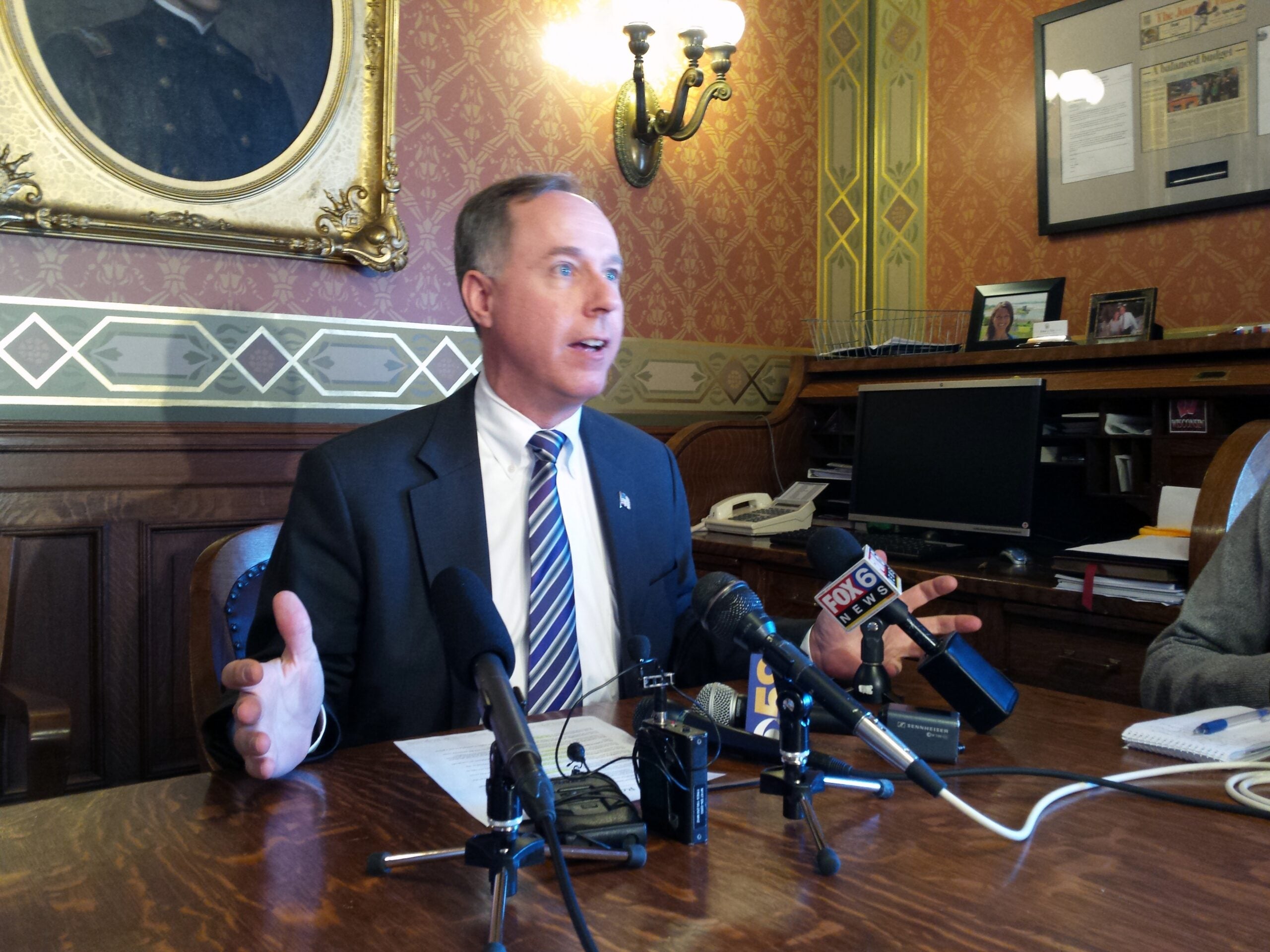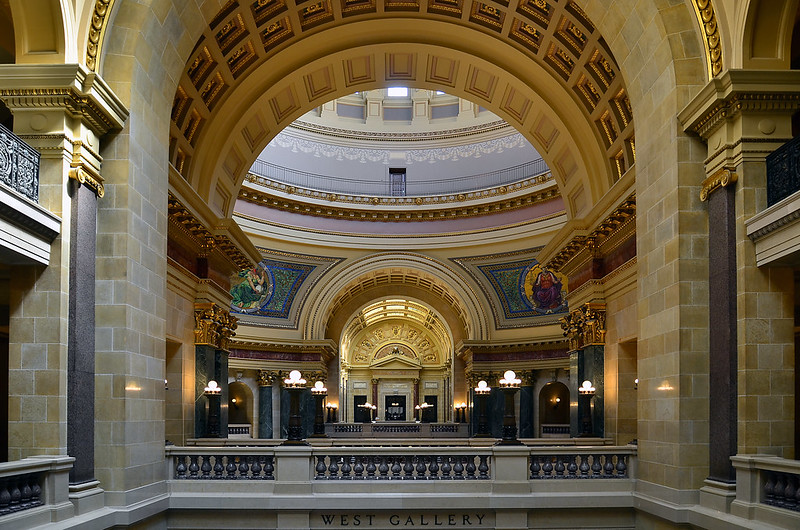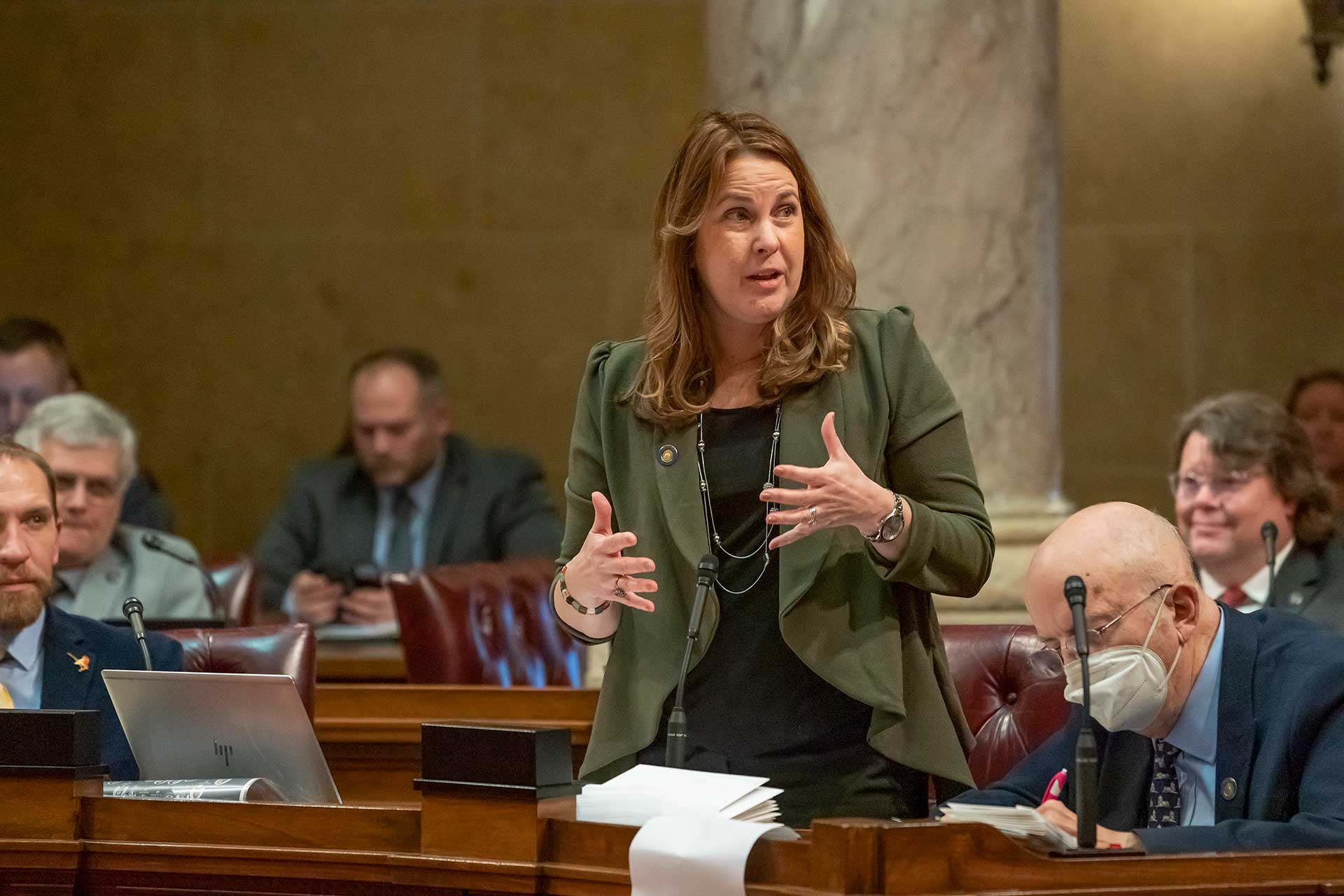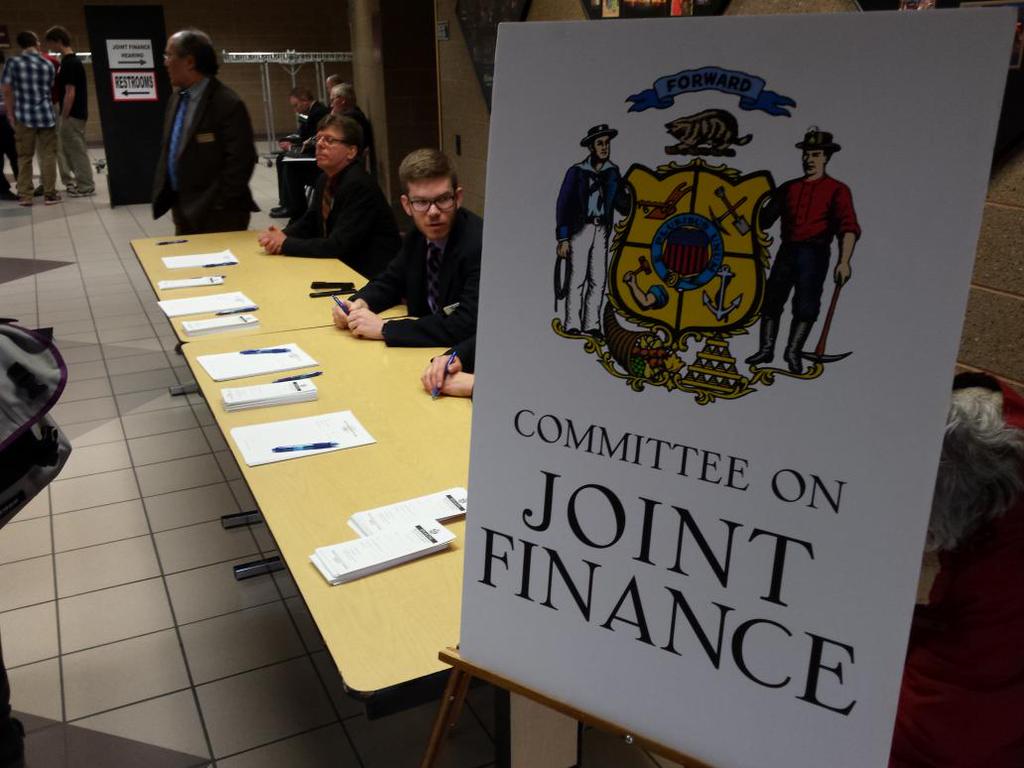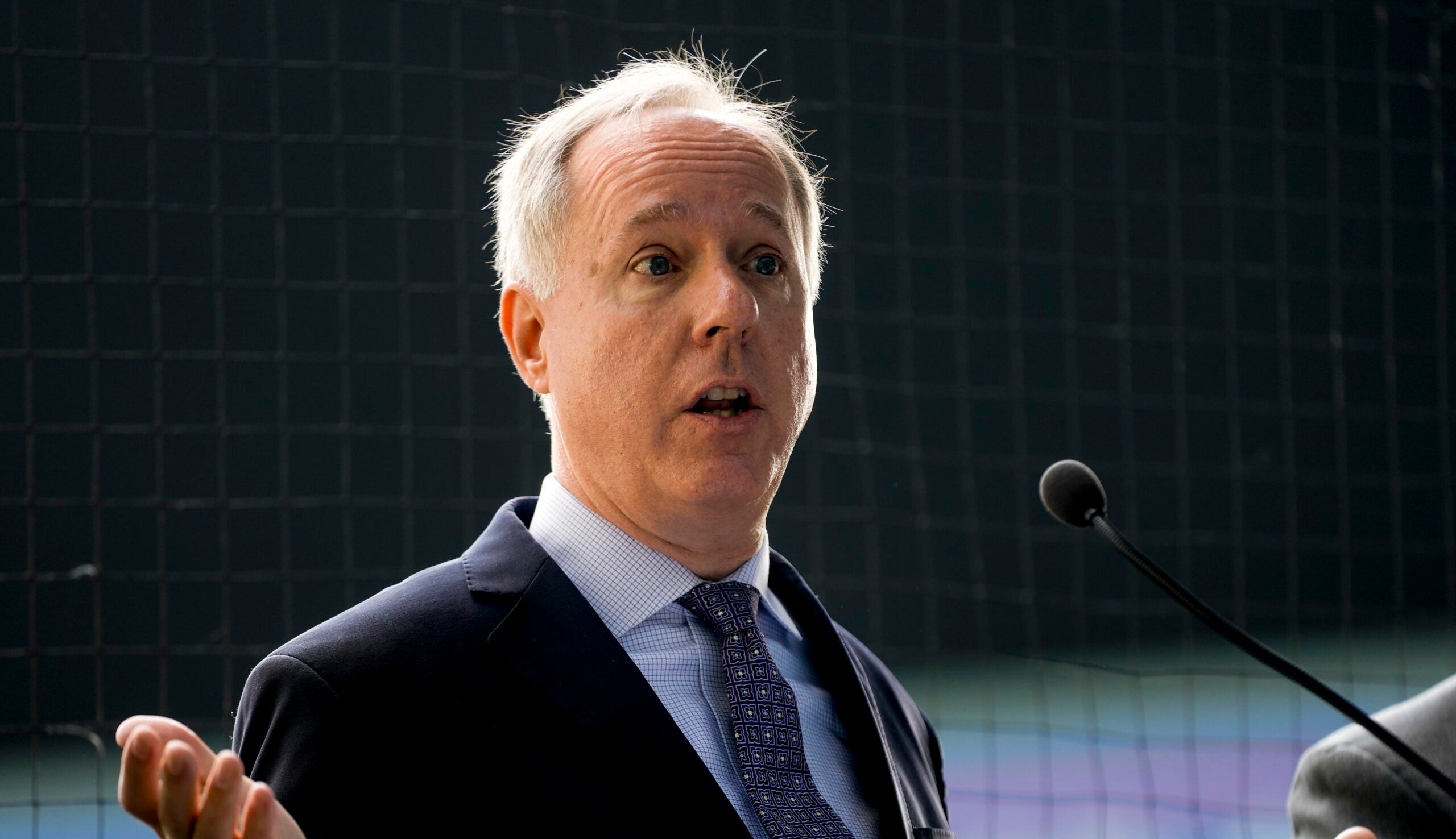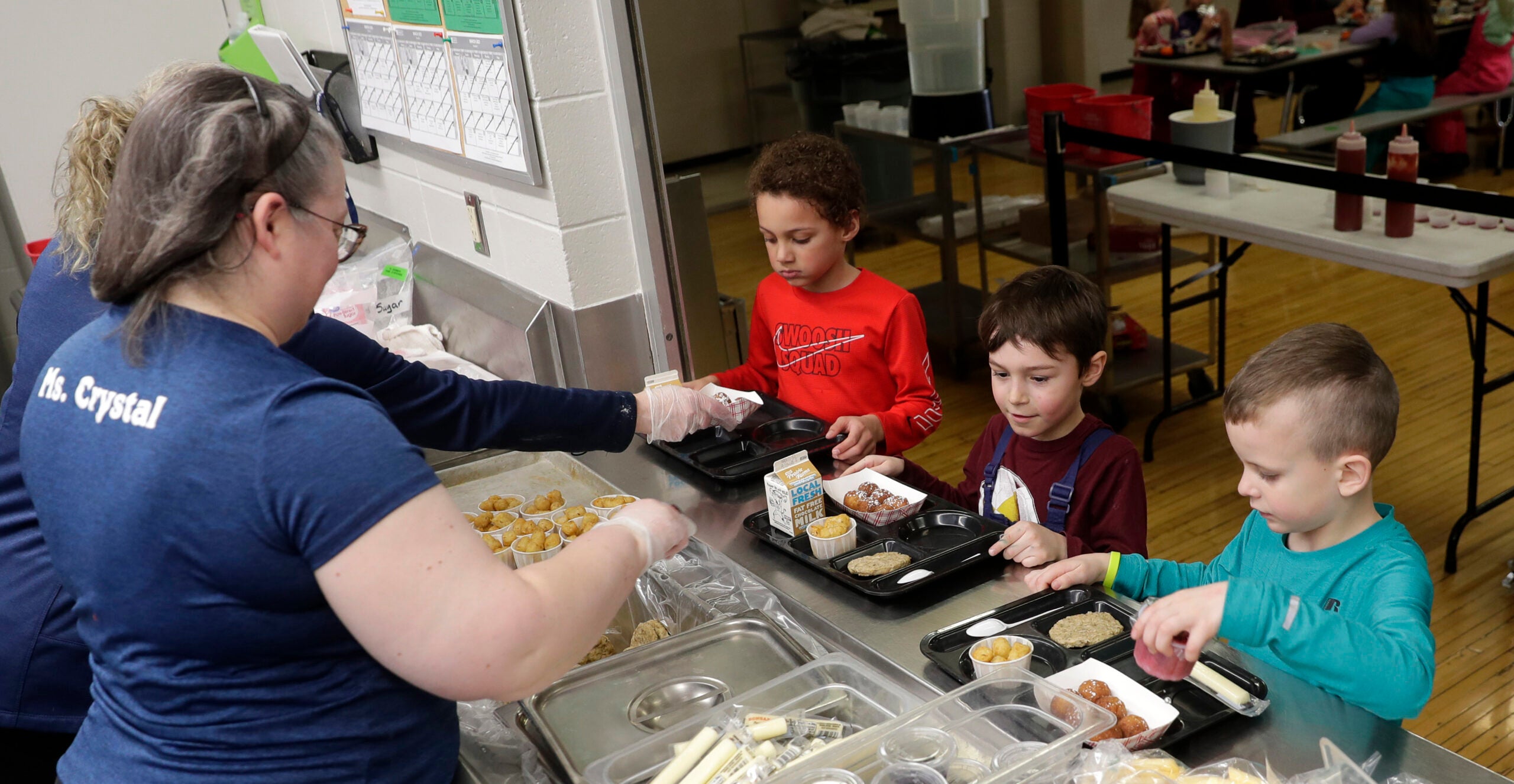Republican Assembly Speaker Robin Vos said Wednesday he’s come to accept there will be no new tax or fee to pay for roads in Wisconsin’s next state budget, but as long as that’s the case, his members won’t support new borrowing, either.
“I would prefer that we kind of accept both of each other’s realities,” Vos told reporters after emerging from an hour-long meeting with Gov. Scott Walker and Senate Majority Leader Scott Fitzgerald. “I have accepted the reality that they don’t want to raise revenue. They need to accept the reality that we’re not going to borrow and spend.”
The comments from Vos, R-Rochester, suggested little movement in budget negotiations between GOP leaders who control all levers of state government. Republicans missed Wisconsin’s June 30 budget deadline, meaning until they pass a new budget, spending continues at last year’s levels.
Stay informed on the latest news
Sign up for WPR’s email newsletter.
In the case of transportation, the lack of a new budget would eventually cause delays to major highway projects. But the same would be true if Republicans pass the kind of budget Vos is now suggesting because no new borrowing would mean no new transportation spending.
“It wouldn’t be my first choice,” Vos said, acknowledging the move would cause problems for the reconstruction of I-94 North-South in his district. “But just continuing to run up the credit card, getting our debt to the point where it’s unsustainable isn’t a good solution either.”
What remains to be seen is whether Vos, and the 64-member Assembly Republican caucus he represents, are firm on this position. Vos made a similar suggestion during budget negotiations in 2015, but Assembly Republicans eventually supported a transportation budget that increased borrowing by $850 million.
Fitzgerald and Walker have both said they’re opposed to any new taxes or fees to pay for roads.
Fitzgerald, R-Juneau, said recently that Senate Republicans would support borrowing $850 million again this year, a number he has since scaled back by $100 million or more.
But Fitzgerald spokeswoman Myranda Tanck said Vos’ proposal to pass a “base” budget with no additional spending was not realistic.
“When you look at the impact that would have on all of the projects going on throughout the state, I think (Fitzgerald) said before and would reiterate that that’s not a realistic solution,” Tanck said.
Walker initially proposed increasing borrowing by $500 million in this budget, and recently said he would lower that to $300 million. While that would be the lowest level in more than a decade, it would still grow the state’s transportation debt. The nonpartisan Legislative Fiscal Bureau said Walker’s original budget would lead to the state transportation fund spending 22 cents of every dollar to pay down old debt. That’s twice as high as when Walker took office.
Walker, Vos and Fitzgerald have all expressed an openness to adding tolls to Wisconsin’s interstates, but that would require federal approval and could take years to implement.
Vos said just asking the federal government to allow tolling wouldn’t be enough to get him to support new borrowing without other new revenue.
“It can’t be a situation where it’s not real,” Vos said. “If it requires congressional action, well then we would borrow the money once we see Congress pass it. We’re not going to do it on sort of a wing and a prayer.”
Vos said he was open to passing other pieces of the budget while Republicans debate transportation, but he acknowledged Wednesday that the Legislature’s budget committee was unlikely to meet this week given the circumstances.
“We could be together fairly quickly if everybody could accept everybody else’s reality,” Vos said.
Wisconsin Public Radio, © Copyright 2025, Board of Regents of the University of Wisconsin System and Wisconsin Educational Communications Board.

